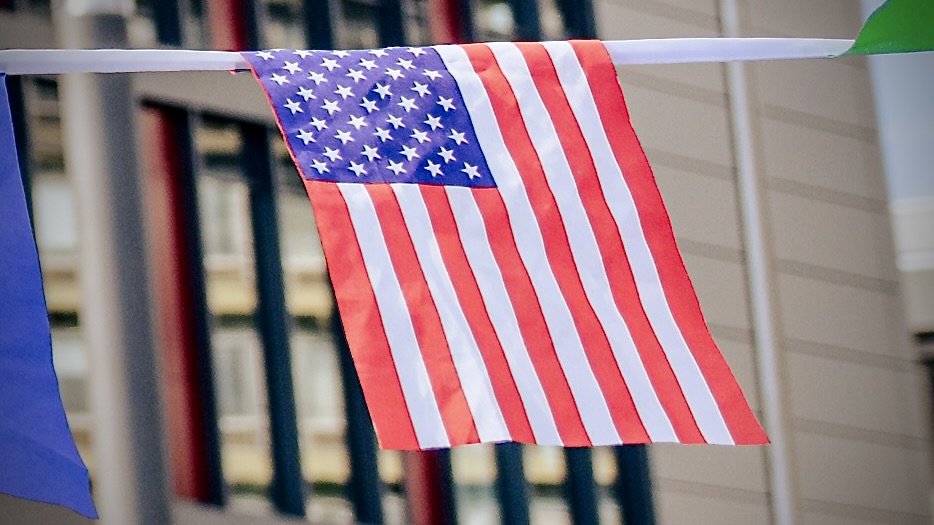On 5 November, the US will decide who will succeed President Joe Biden. Kamala Harris or Donald Trump? This is the essential question, but not the only one. How will the outcome of the US election affect universities in Germany, for example? And what challenges or new obstacles are foreseeable? In the following interview, Prof. Dr. Peter Fäßler, Contemporary History at Paderborn University, assesses Trump’s possible election victory in terms of its impact on the university system. The result of the presidential election raises questions regarding international cooperation, research funding, exchange programmes for students and lecturers, and academic freedom, among other things.
What preliminary considerations need to be made before the specific questions about the possible effects can be addressed?
Prof Dr Peter Fäßler: Today we are talking about expectations and forecasts for the coming years. There are three important sources for this: Trump’s fundamental agenda, i.e. his election programme “Agenda 47” and his numerous public statements, the assessments of experts from the worlds of business, science and education, and the experience gained during Trump’s term of office from 2017 to 2021. It is worth noting that education and science do not feature prominently in his election programme. Instead, a diffuse criticism of the “scientific establishment” characterises his stance. Nevertheless, Trump will not be able to simply pursue his agenda and “govern through”, if he wins the election. Congress, the House of Representatives, and the Senate have repeatedly stopped him in the past; state universities are the responsibility of the federal states etc. However, there are a few adjustments that Trump can – and probably will – make.
Which adjustments are these, for example?
Fäßler: The most important factor is, of course, money. Trump is aiming to make cuts to unpopular institutions, for example in the field of cultural studies and the humanities. Topics such as gender research, critical race theory and post-colonialism are among the fields of research that he would like to banish. In the field of natural and technical sciences, Trump is particularly bothered by climate and environmental research. On the other hand, a lot of money is likely to flow into defence research, IT and AI or semiconductor technology. And these topics also have an impact on the education and science sector.
How might the outcome of the US election affect international research collaborations and partnerships between universities in the US and abroad, particularly regarding visa regulations for researchers and students?
Fäßler: It can be assumed that Trump will reduce international cooperation in studies and research due to his “America First” approach. However, this is not his decision alone. Many things will be able to continue, as there are contracts and changes cannot simply be made during ongoing operations. But the fact that Trump wants to make cuts will have an impact on cooperation and partnerships in the future – even if he encounters resistance. I know from reports from the German Academic Exchange Service (DAAD), the Humboldt Foundation and the Fulbright Programme that the number of scholarships went down during Trump’s first term in office. And the number of H-1B visas for highly skilled workers also declined for the first time under Trump. Regarding cooperation and partnerships, it is important to remember that Trump is not (yet) taking such a hard line against Europe, but we have to expect restrictions.
What changes in education policy and funding could result from the US election, and how would these changes affect the availability of research funding, scholarships for international students and institutional budgets of universities?
Fäßler: The trend towards the privatisation of education and science that has already been observed is likely to continue. Under former Secretary of Education Betsy DeVos, who was part of Trump’s administration from 2017 to 2021, funding programmes for socially disadvantaged students were also severely cut, which in turn widened the gap between rich and poor in the USA. Such cuts could also extend to other areas of education. Scholarships could also be affected. Trump also wants to push ahead with redundancies among existing university staff to enable new hires. In some cases, he would like to cut interdisciplinary programmes completely. Gender studies, for example, would be affected. Contradictory to all these considerations is Trump’s idea of a conservative “American Academy” committed to his agenda, which he wants to establish to enable tuition-free studies.
To what extent could the election result change the prioritisation and funding of research areas such as climate change and sustainability, and what impact would this have on universities that focus on these areas?
Fäßler: Cuts affecting the Environmental Protection Agency (EPA) and the Agency for Healthcare Research and Quality were already announced during Trump’s first term in office. Congress had objected to this. However, a climate of denunciation and fear prevailed under Trump when it came to climate policy issues. EPA researchers, for example, have transferred important data abroad to secure it for the future. This is because there are concerns that international research projects will be cancelled under a Trump administration and that access to important data around climate change and the energy transition will be denied in the future or that essential data will no longer be produced. Employees have also been banned from publishing or are not allowed to comment publicly on certain topics.
How might the elected administration’s policies on innovation, technology transfer, and the commercialisation of academic research affect university-industry exchange in the US and internationally?
Fäßler: It can be assumed that Trump will continue to work closely with his current supporters. These include influential, technology and tech-savvy entrepreneurs in Silicon Valley, who could provide large budgets, sometimes in the billions. Cooperation in the fields of IT, semiconductor technology, and quantum technology could be stepped up accordingly. Nevertheless, it should also be noted that Trump is likely to pursue his “America first” course in these areas. Very application-oriented future technologies will thus presumably benefit, but whether international cooperation in this area, in which joint research would be useful and expedient, will be continued remains questionable. I can imagine that Trump will not take such a hard line against Europe in these areas, but his focus will certainly be on China and the Arab states in terms of competition and threats.
What impact could the outcome of the US election have on academic freedom and cultural diversity on campus, especially in a climate where issues such as free speech and inclusion are becoming increasingly politicised?
Fäßler: Based on Trump’s various public appearances, it can be seen and assessed that he will not harmonise the currently heated climate, but – on the contrary – will himself continue to cause it to heat up. It has also been observed in the past that presidents act differently during a second term of office than they did during their first. It is therefore possible that Trump will want to take a tougher approach. Less consideration would be a possible consequence. There is already an atmospheric poisoning. If Trump wins the election, I can well imagine that freedom of speech would be affected and restricted. And here, too, I would like to say that fortunately Trump cannot “govern through” alone. Even with a presidential decree, there are still the important “checks and balances”. There are also empirical values from the past, but of course these cannot be transferred 1:1 to today. Basically, I think that cultural diversity, inclusion, and free speech will be severely restricted and changed, if Trump becomes US president again.
Let’s also take a look at the other scenario: what are your predictions for a Harris election victory?
Fäßler: There are several developments that are similar between the rivals, including, for example, reservations about Asian competitors on the global market. Harris will also be keeping a close eye on these developments. This is not a USP for Trump. Harris will also see the focus of research and support in key technologies. However, Harris will not engage in an atmospheric culture war but, in my current assessment, will try to calm the waves. It remains to be seen, and I am looking forward to the US election with great interest.
Thank you very much for the interview!
This text was translated automatically.


